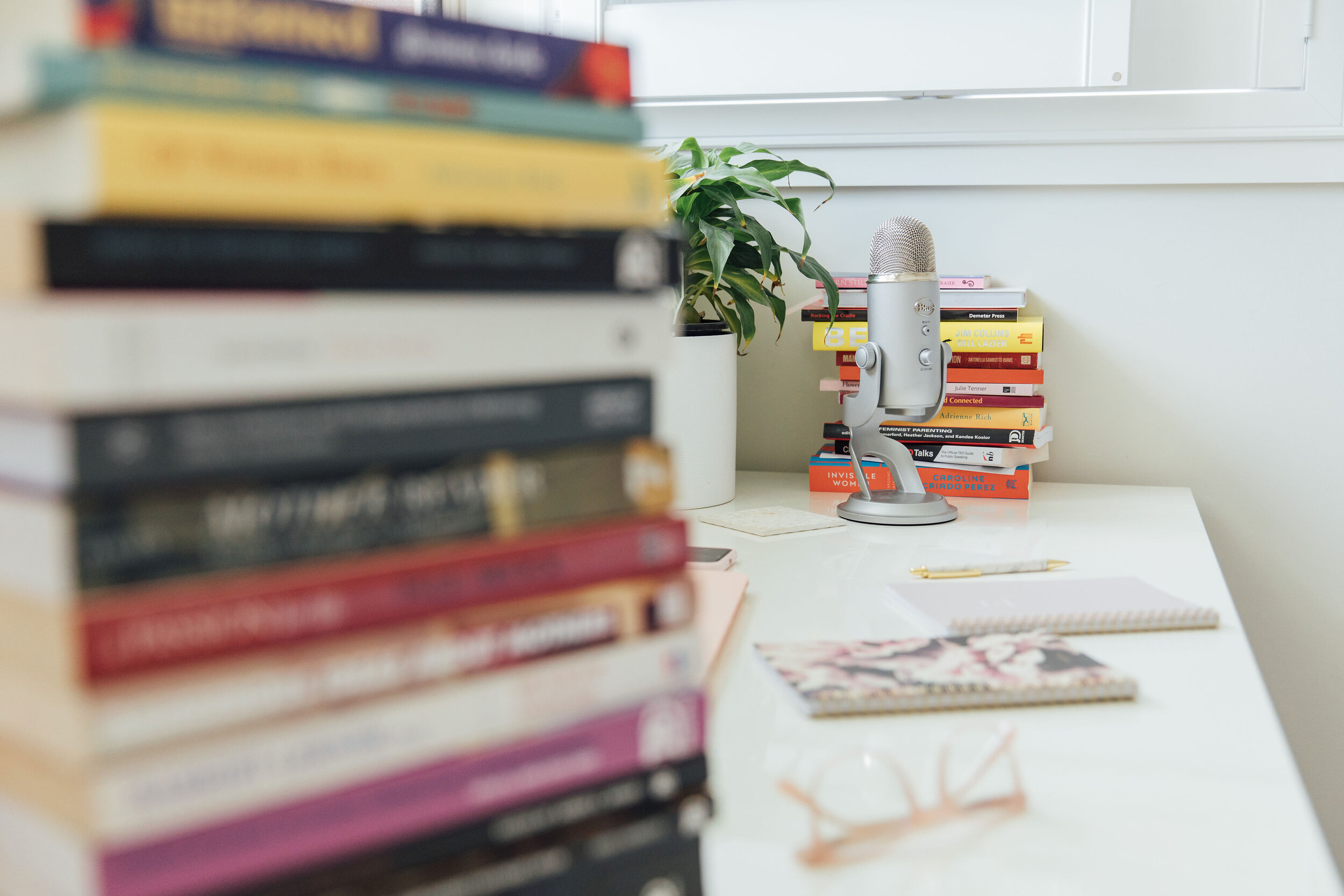Hi, I’m Sophie
‘About me’ pages are supposed to be clear, concise, relatable and succinct, aren’t they? To paint the story of who we are in a way that is quick, will capture attention, and build connection.
Part of what interests me as a sociologist (who has a specific focus on identity) are the ways we construct ‘who we are’ based on what we perceive others (and our society) expect to hear.
So much of my work is about giving voice to these expectations - to these constructions - that are created as part of what it means to be a Mother in our world.
To connect to the authenticity of who we are, we first have to deconstruct who it is the world expect(ed) us to be.
This is why writing an ‘about me’ page is an interesting (but challenging) exercise for someone who likes to highlight nuance and is wary of the ways labels can cage us.
I completed my PhD from The University of Sydney just before I became a mother myself, and one of the main results from my research was a conceptual theory about the way Motherhood is socially constructed and individually experienced.
This theory has been described as ‘ground-breaking’ and ‘life-changing’, and is at the basis of everything I teach.
I describe it in my work with Mothers and mother-supporting professionals as the ‘fish-tank of motherhood’ model.
You can hear more about it here.
What is a ‘Motherhood Studies Sociologist’?
A Motherhood Studies Sociologist is a Social Scientist who studies Motherhood and Mothers.
So imagine a scientist in their science lab, studying a specimen under their microscope.
Well a social scientist’s lab is our society. Our ‘specimens’ for study are individuals and groups.
Our ‘microscope’ are our theories, concepts, and methodologies that we use to help interpret and make meaning from our data.
What it means to be a ‘Mother’ is shaped by social, historical, and cultural factors, and understanding this offers us important insight into understanding and interpreting the experiences of individual Mothers.
I bring this perspective to my work with both Mothers and professionals who support Mothers, teaching the sociological dimensions of Motherhood. I do this through my online courses, memberships, and podcast.
The ultimate purpose of my work is to contribute to changing the cultural conversation on Motherhood and the individual experiences of Mothers, creating a world where Mothers feel empowered, supported, and valued.
Motherhood is different to mothering.
Mothers do their mothering within the context of Motherhood.
The social rules around Motherhood are the ones Mothers live their lives within.
These rules become embedded within our own lives, and in the systems, structures, and institutions that we live within.
Understanding these rules is the first step to an empowered, liberated, reimagined version of Motherhood.
motherhood - the social
To transform how Mothers are supported in our society and how women experience Motherhood, we need cultural, economic, and institutional change. Such changes are not only for the sake of Mothers themselves, but are in the interests of our children and broader communities.
mother - the individual
I believe social change often starts with the individual. Understanding and detoxing from the toxic cultural myths of perfect Motherhood allows us to rewrite the rules of Motherhood and create incredible individual transformation that inevitably prompts social and generational shifts.
The motherhood revolution
My vision is for a Motherhood liberated from patriarchal structural constraints, where Mothers have agency, support, and possibilities open to them. Creating this world requires the deconstruction of dominant models of Motherhood, including ‘the perfect mother myth’, intensive mothering ideology, and martyrdom-motherhood. I believe that through this work, we can create space to imagine, (re)claim, explore, and connect to a version of Motherhood that sees women who mother as valued, powerful, and whole. Importantly, in order for Mothers to have the capacity to exercise their agency they need adequate support structures in place. This is why we cannot talk about individual transformation without understanding social transformation.
But this work of transforming Motherhood - for ourselves, our children, our clients, our communities, our families, and our legacies - it starts with us. It is an honour to guide those who are ready to step into this journey towards revolutionising Motherhood.




